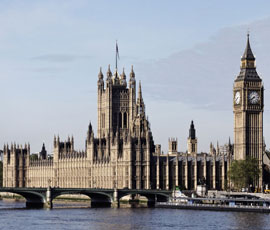MPs abolish farm wages board

The government has been accused of being underhand after MPs voted to abolish the Agricultural Wages Board.
Abolition of the wages board, included as amendment within the Efficiency and Regulatory Reform Bill (ERRB), was passed without debate on Tuesday (16 April).
Shadow food and farming Huw Irranca-Davies condemned the government for avoiding the need for debate by refusing to prioritise the issue.
“The rural workers and families affected deserve a voice in Parliament and the government has gone out of its way to ensure they do not get one,” he said.
The wages board has set minimum wage levels for farmworkers in England and Wales for more than 60 years.
Abolishing it could cost low-paid rural workers and the wider rural economy up to £260m, claimed Mr Irranca-Davies.
Farm leaders disagreed, saying that the board was outdated and imposed unnecessary red tape on employers – especially when Britain has a national minimum wage.
The NFU said its abolition would not result in lower wages. Agriculture was the only industry to have its own wages board, it said.
NFU deputy president Meurig Raymond said: “This makes the decision to abolish it right and proper and will bring agriculture alongside other 21st-century industries.”
The board will now be abolished on 1 October.
Unite union, which represents farmworkers, said its demise could now prompt a challenge to the European Court of Human Rights.
Unite national officer for agriculture Julia Long said: “What we have witnessed today is a national disgrace and the capitulation of MPs to the interests of the big employers and the supermarkets, who want to ruthlessly drive down costs.
“There was not even a vote on the amendment by MPs on this vital issue which is a stain on democracy. The spectre of poverty embracing the countryside is now very real.”
Ms Long said Unite would fight to restore the wages board and would set up a “wages watch” unit to monitor any assaults on the pay and conditions of its members in the coming months.
“The destruction of the AWB without replacement by an alternative collective bargaining body for the agricultural industry will be in plain breach of the UK’s international obligations,” she said.
